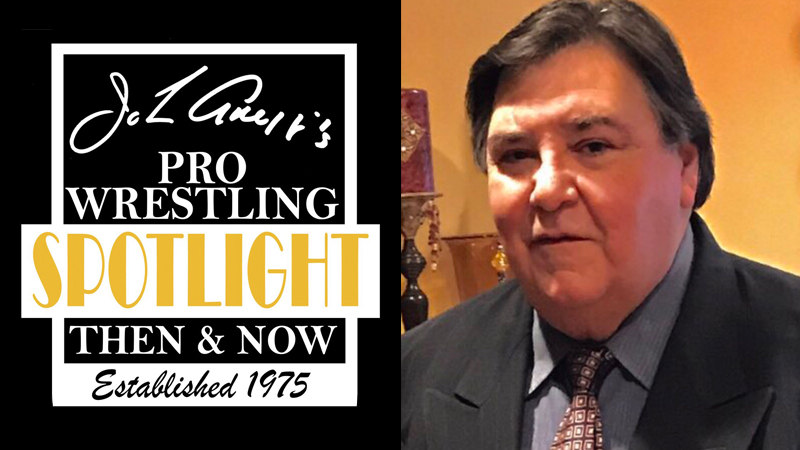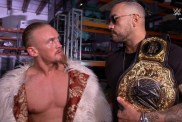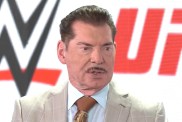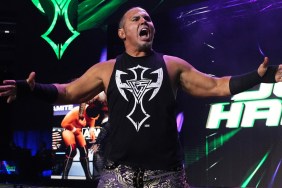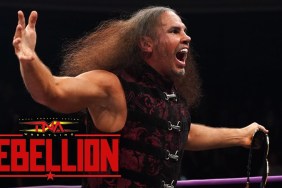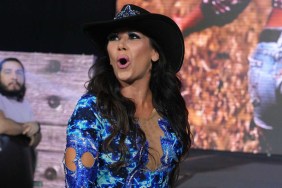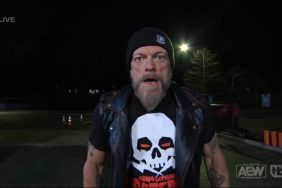Last week I was fortunate enough to speak with pro wrestling media trailblazer John Arezzi who is well known for his ever-popular Pro Wrestling Spotlight radio show that ran throughout the late ’80s to mid-1990s. In addition to that, Arezzi took part in many historic moments in Madison Square Garden as a ringside photographer and went on to become the first big promoter of “Weekend Of Champions” which is considered to be one of the first major wrestling conventions in which fans could interact with some of their favorite wrestlers and personalities.
Arezzi’s Pro Wrestling Spotlight was the first notable radio program to show the insider side of the business and was so far ahead of its time by what many wrestling fans consume today as far as behind-the-curtain podcasts go. Arezzi now releases classic episodes of his Pro Wrestling Spotlight episodes on Brian Last’s Arcadian Vanguard Network in which he and Last both revisit and react to those classic moments on the show which featured guests from Bruno Sammartino, to Scott Hall, to Terry Funk, to Paul Heyman and so many more icons of the business.
In this transcription Arezzi talks about the historical significance of the Pro Wrestling Spotlight and how it broke ground by being the first wrestling insider radio show. Arezzi shares some stories about initially receiving blow-back from “pulling back the curtain,” but then talks about how a great deal of the business wanted to get on his show to tell their sides of the story. Arezzi says he still watches wrestling avidly, but how he knows the right chord to hit with his fanbase:
“There’s so much of it now that is digested by the wrestling fan and there is so many options and I think what’s best for me is to kind of not dive into today’s product because I don’t have the connections I did back in the day and I don’t have the desire to make statements or opinions or politicize you know ‘who should go over in this company’ and ‘why isn’t this person getting a push’ or what’s happening behind the scenes with this organization and that organization.” I think my role is more of a historian and someone who could tell some great stories and play some great content and have fans relive some of these things that were kind of really historic…”
“That’s where I think I have a value and as the listeners to the podcast will discover as we proceed with future episodes of Pro Wrestling Spotlight I mean it literally is an ‘A to Z’ of the biggest names that were in the industry for that time period. A lot of history happened during Pro Wrestling Spotlight back in its original airings that people are going to have the opportunity to hear on that podcast. We have six years of shows to play.”
Arezzi spoke about the historical significance of his Pro Wrestling Spotlight show, noting that no one else had a show like it. He called it a “breakthrough show” that tore down the curtain of professional wrestling, which not only introduced fans to a new media format, but drew heat from the wrestling business as well.
“No one was doing shoot interviews, no one was doing what I did. So in the beginning, it was kind of like…I got a lot of heat. I remember being thrown out of the locker room by Ric Flair in 19—it was late ’89 because this is after the Steamboat story broke and Jim Hurd came on and Flair thought I was exposing the business and later publicly apologized to me at the “Weekend Of Champions” convention in 1991 who kind of saw the value of what I was doing and the fanbase that I was catering to, which were the hardcore fans.
“So as time went by, then people would be calling me to come on the show. ‘Hey can we talk to you about this?’ and ‘Can we talk to you about that?’ And so it was kind of open season. The only cooperation I didn’t get was from WWF. They hated what I was doing and they were also the subject of most of the shows because of the way they had presented their product because it was changing in so many ways because they were developing cartoon characters rather than wrestlers back then, and changing the names of the Kerry Von Erichs and the Curt Hennigs and the Barry Windhams. I mean just changing their names and not even recognizing their past.
And then I got a lot of heat during the ‘scandal era’ because I was at the forefront of breaking a lot of those stories on Pro Wrestling Spotlight and I didn’t endear myself to Vince McMahon or anybody at Titan Sports at the time.”
(Transcription credit should go to @DominicDeAngelo at WrestleZone)
